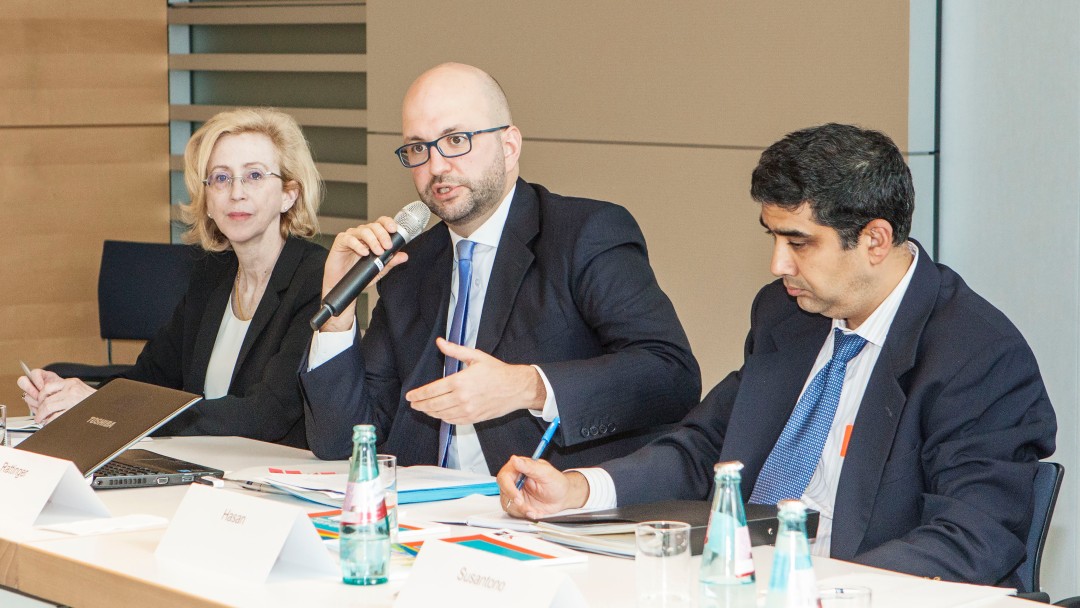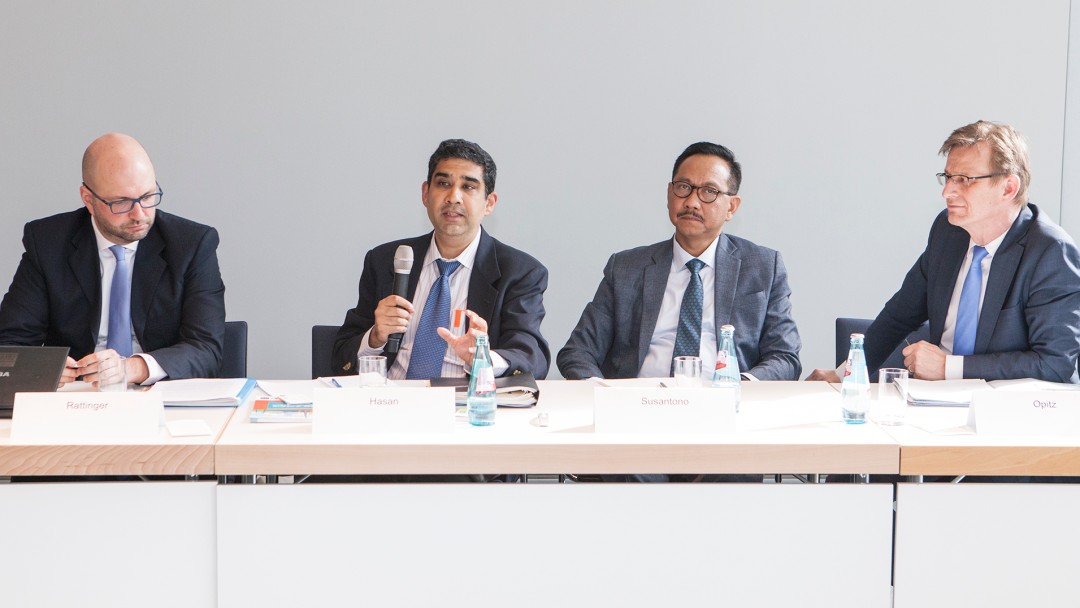News from 2017-05-05 / KfW Development Bank
Climate change pushing up infrastructure costs
ADB presents its forecasted need for investment at KfW
USD 26 trillion: this is the amount of funding needed to modernise and expand Asia's infrastructure by 2030. The Asian Development Bank (ADB) presented their report, "Meeting Asia's Infrastructure Needs", at KfW at the end of April.
Roads, bridges, power lines, water and sewage pipes - there is a great need for infrastructure in Asia. As China and Bhutan are already investing considerable amounts, a large gap is opening up between them and other, especially poorer countries. Asia, Bangladesh and Papua New Guinea rank at the bottom of the list in terms of the percentage of GDP spent on investments. 300 million people in Asia are still living without access to clean drinking water, and 400 million people have no power supply.
Governmental efforts are not enough to cover the annual investment requirement calculated by the ADB of USD 1.7 trillion. Development of the private sector is also required. However, not all sectors are equally attractive to private investors. For example, water supply and sanitation represent one area which barely attracts any private capital. The need for investment which has now been calculated is more than double the amount recently forecast in 2009. This is because the figure includes the costs for climate change adaptation, as well as the ongoing economic growth of the region.
In order to ensure that this growth is sustainable, KfW and ADB are pulling together, explains KfW Senior Vice President, Stephan Opitz. The two development banks have been partners for 45 years. ADB Vice President, Bambang Susantono, who is in charge of sustainable development and knowledge management, welcomes the shared commitment. In his opinion, one of the most important challenges is the fact that, until now, the economic growth of Asian countries has meant inequality has increased. The ageing of Asian societies, increasing urbanisation and climate change are further developments which have had an impact on the need for infrastructure.

Threefold increase in private capital required
Rana Hasan, author of the ADB infrastructure report, sees the role of multilateral development banks as strengthening the environment for investments in infrastructure. A policy should be encouraged, which implements tax reforms, mobilises private capital and builds a better foundation for planning and implementing building projects. Support from the private sector would need to be three times as high in order to cover the financing requirements.
ADB climate expert Michael Rattinger says that climate-friendly investment is essential, but also positive, as it then pays off. A particularly high percentage of the population in Asia is exposed to the consequences of climate change as they work in agriculture and the fishing industry or live in poor urban areas. By 2020, ADB will therefore raise their share of financing which is aimed at reducing the consequences of, or adapting to, climate change, to 30% of their overall investment.
Climate change forces expensive adjustments
As an example, Rattinger cites the extent to which climate change influences the construction of infrastructure: during one project, two smaller bridges were originally intended to be built. Instead, one larger bridge had to be built at a different location in order to avoid flooding in case the water level rose significantly in the future. However, other stakeholders needed to be involved and the planning process had to be changed. However, changes such as these cause costs to rise.
KfW climate expert Jochen Harnisch asked about the role of external sources of finance such as the Green Climate Fund. While Michael Rattinger called the fund "very important", he stressed that the international community alone cannot be relied upon to provide funds. He clarified his opinion, saying that the calculation for the costs of climate change presented by ADB is "extremely conservative".


Share page
To share the content of this page with your network, click on one of the icons below.
Note on data protection: When you share content, your personal data is transferred to the selected network.
Data protection
Alternatively, you can also copy the short link: https://www.kfw-entwicklungsbank.de/s/enzBWrMC.BksB
Copy link Link copied